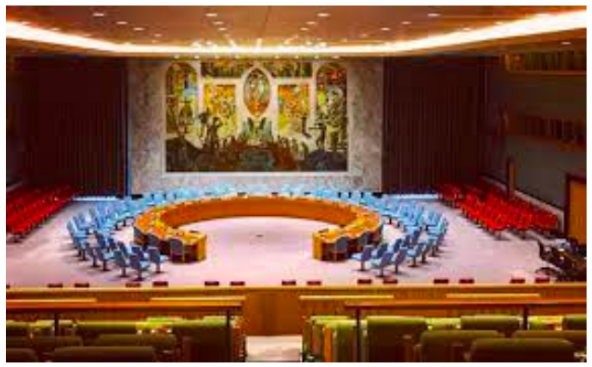Answer:
Approach:
- Introduction: Briefly explain the importance of the UN Security Council in global governance, emphasizing its role in maintaining international peace and security. Also, talk about India’s aspiration to secure a permanent seat in the Council.
- Body:
- Discuss the origin of the UNSC, its current composition, and the growing global consensus on the need for reforms given the changing geopolitical dynamics.
- Highlight India’s global stature, its historical ties with the UN, its stand on disarmament, and its active international participation.
- Mention India’s shift from non-alignment to multi-alignment, emphasizing its potential as a balanced power.
- Trace India’s endeavours towards achieving permanent membership, including its association with groups like G4 and its efforts to gain support from permanent members.
- Detail India’s strategic alignments, such as its nuclear deal with the US, strengthening ties with Russia, and diplomatic overtures towards China.
- Elaborate on the major roadblocks India faces, including China’s opposition, India’s reluctance on certain international treaties, and the contentious issue of the veto power in the UNSC.
- Conclusion: Emphasize India’s potential role in reforming the UNSC and making it more representative of the current global order.
|
Introduction:
The United Nations Security Council (UNSC) holds the paramount position in matters related to international peace and security. Since its inception in 1946, its structural composition has remained static, with five permanent member nations enjoying the power of the veto. As the world has evolved, the demand for reforms within the UNSC, specifically for the inclusion of new permanent members, has gained momentum. One of the prominent aspirants for a permanent seat is India. While India presents a strong case for its inclusion, it has faced numerous challenges in its journey.
Body:
The Challenges Faced by India in its Pursuit of a Permanent Seat in the UN Security Council:
 The Changing Global Dynamics:
The Changing Global Dynamics:
- The current structure of the UNSC is based on the post-WWII world order, which does not reflect the current geopolitical realities.
- Today, India is an economic powerhouse and a significant player in global geopolitics.
- For example, as of 2020, India is the world’s fifth-largest economy in terms of nominal GDP and third in terms of purchasing power parity.
- Power Play and Veto Politics:
- The power dynamics of the P5 nations (permanent members) and their vested interests have often stymied attempts to reform the UNSC.
- For instance, China, a P5 nation, has consistently shown resistance to India’s permanent membership, likely due to geopolitical rivalries and border disputes.
- Opposition from Regional Players:
- Some nations have formed coalitions to counter the aspirations of potential new members.
- For example, the “Uniting for Consensus” group, including countries like Pakistan and Italy, opposes the inclusion of the G4 nations (India, Japan, Brazil, and Germany) as permanent members.
- India’s Stance on Global Treaties:
- India’s refusal to sign certain international agreements, such as the Nuclear Non-Proliferation Treaty (NPT) and the Comprehensive Nuclear-Test-Ban Treaty, has been cited as a hindrance to its candidature.
- For instance, India’s nuclear tests in the late 1990s and its stand on NPT have been contentious issues in global forums.
- Socio-economic Challenges:
- Despite its economic growth, India’s challenges in certain socio-economic indicators could be viewed as impediments to its global leadership role.
- For example, India’s position in the Human Development Index and challenges like poverty and health indicators could be points of contention.
- Over-reliance on Weaponry Imports:
- India’s heavy dependence on arms imports might raise questions about its ability to project power beyond its immediate region.
- For instance, India’s military imports from nations like the US and Russia might make some question its potential role as a global security leader.
- The Veto Power Debate:
- The existing structure grants the P5 the power to veto any substantive draft council resolution, a contentious point in reform discussions.
- For example, the use of veto power by P5 nations in issues like the Syrian conflict demonstrates the challenges in decision-making within the UNSC.
India’s pursuit of a permanent seat in the UNSC is emblematic of its growing global stature and the broader demand for making the Council more representative of contemporary geopolitical realities.
Conclusion:
For the UNSC to remain relevant and effective in the 21st century, it needs to embrace reforms that echo the voice of emerging powers like India. Such inclusivity would not only bolster the credibility of the UNSC but also enhance its efficacy in addressing global challenges.
To get PDF version, Please click on "Print PDF" button.
 The Changing Global Dynamics:
The Changing Global Dynamics:

https://uploads.disquscdn.com/images/331365c52c8d83f70b27c0177294c284d47d0a8167c229504f2657b2e391b5c9.jpg https://uploads.disquscdn.com/images/c9d0253352431ce6f2bd333470db2c100b4de1faabe82a9312d2fc16593ccac1.jpg https://uploads.disquscdn.com/images/d929009b3b523e513222042a6318ac166b9867b13b6331cdc49374da661ebf7e.jpg
https://uploads.disquscdn.com/images/0f11df80b2087ea35ca0ba9db745c5e2c673548761019d437152fd458a365499.jpg https://uploads.disquscdn.com/images/9f6e5bb83fcc0062d0d2fa471e5c3a216eff81cc09315b184c90d80758398632.jpg https://uploads.disquscdn.com/images/d947b91d7a04c2b9cc2353831951d7d55be152b933be0500e06342e6be84287b.jpg
https://uploads.disquscdn.com/images/4be8002d7e50f4ee45dd6b8bb757da3cd63a0d4aefb2e42166bce9e0c6ed8a13.jpg
https://uploads.disquscdn.com/images/3e4a71f62fd945c6e2cec7f5f87f33f1147ea32d38121006b915e3e56b00b4ec.jpg
https://uploads.disquscdn.com/images/ca8d482570b826b133926f79f84e61abdcad64cfdf50b91eddffd30414993018.jpg
https://uploads.disquscdn.com/images/c5c26719acb5c8bbc3468e68c8d3cf3c591b584adf342e5040b50ceb88930926.jpg https://uploads.disquscdn.com/images/d84b51dabf14aeb2d4cef64258c93d563a5cfa1ca430ffa2e04ed1970581a0e2.jpg https://uploads.disquscdn.com/images/703769c645296836038951cd23aee468426ea00e443f870f0243d39fb9140244.jpg
https://uploads.disquscdn.com/images/53dfac81b25a1b33d88b1b1468874a8747711c21adf514af3235813c572cf06a.jpg https://uploads.disquscdn.com/images/95c4d9f5d297e5dc1df51311c003b4bacad82c3ffe8aafd5719fa2bee0ac0e97.jpg
https://uploads.disquscdn.com/images/fd763f795e3b3a3e3a2eb39b78b7f223d457dd9576fc79f60bc8cde0dec221ec.jpg https://uploads.disquscdn.com/images/1522fbd0f558fed7850f1aba8160c2781f1e34694c97f824e8a9005579f0a695.jpg
https://uploads.disquscdn.com/images/322fdd94be582571f929b3dc696d0a4b1ff30c96d1bae3638d982526772ae012.jpg https://uploads.disquscdn.com/images/1e4405ebe3e55ba9221e6d38c3addaa495d4b3ee9f72fc700eb396d341eedbcc.jpg https://uploads.disquscdn.com/images/0009471ee6578c9fc92bc1e069d26a3570b3af7f93c71163e29f15caed3117f8.jpg
https://uploads.disquscdn.com/images/5b9d0f5e9b069b61379e4bedd991295fc36317e64c3d8d2440d063c35468eebd.jpg https://uploads.disquscdn.com/images/23cdf1217697e7a066c186c328dab2155004073891f8630851fc64d870863715.jpg https://uploads.disquscdn.com/images/8b713e58ecc00c25fb9a1ff441ca643067a05a1d4f89ff97f24f62e693b58ab9.jpg